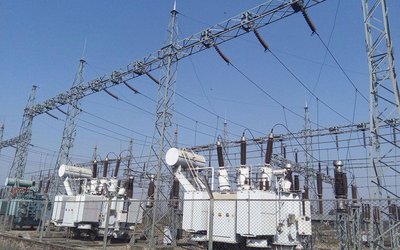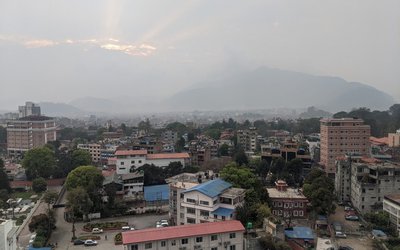As I have been a witness of law practice in Nepal since 1999, I have observed the following problems of foreign investment in Nepal.
- Contradiction in Nepali Society - There is a big contradiction in Nepali society. Nepali society is preoccupied by revolutionary ideas. Such society does not provide respect to capitalist. To be a capitalist is something like being a criminal. However, leading individuals in all walks of society in Nepal are living life of top capitalists. Such contradiction in Nepali society is not only contradiction but also hypocrisy that Nepali society has been preserving and wants to be proud of it. This is the fundamental problem for all investments including foreign investment in Nepal.
- Contradiction in mindset of people – Majority of people in Nepal have a mindset that making money is doing a crime. Even if they don't speak this fact directly, their conduct and behavior demonstrates such facts. If somebody makes money he automatically becomes a samanta or dalal (feudal or comprador). People do not accept the fact that the sole purpose of investment is making money. Investment is not a philanthropic job. It is an entrepreneurship to make money, clear and simple. But, this fact is hardly accepted in the mindset of majority of Nepali people. Well, there are corpora social responsibility and further corporate citizenship responsibility. But, they are not core objectives of investment. They are ancillary values and appear if only an investment makes money. Such situation in Nepal has been a great problem in Nepal for investment including foreign investment.
- Labor Laws and social security – Labor law remained a huge problem for investment in Nepal. Those who become permanent in an enterprise, think that they hardly need to work for salary and attendance would be enough. Therefore, employer always tried not to make an employee permanent. This problem is now solved by the new labor law. However, the new social security based on self contribution may also distract investment if it is not well managed. It seems that it would be difficult to implement the new labor law with social security especially in the context of No. 1 and 2 mentioned above.
- Policies in Road - The outcome of above 1,2 and 3 is that Nepalis are fond of prescribing policies in roads rather than in papers. Nepali leaders give high prescriptions for policies in mass meetings and road demonstrations. However, such policy prescriptions hardly appear in a piece of paper. The general tendency is that we are poor in paper work and very strong in chanting slogans in road. Such practice is not helpful for promotion of investment.
- Old and scattered laws – Investment related laws are old and scattered. It is often very difficult to figure out what is the law in Nepal with respect to a certain point.
- Bureaucratic hurdles – Institutions like non-resident Nepalis have institutionally pointed out that bureaucratic hurdle is the problem for investment in Nepal.
- Lack of competency in bureaucracy – Bureaucrats are trained for general work. Such bureaucrats may not be able to evaluate and proceed the files of investment projects.
- Difficult to outsource competent human resource – There are problems in mindset of the bureaucrats and laws to outsource human resources from home and above so that the problems mentioned in above 7 could be solved easily.
- Fear of oversight (CIAA) – A business always involves some risk, small or big. A bureaucrat needs to take at least some risk while making a business decision. But, there is a big threat against the bureaucrats the Commission for Investigation for Abuse of Authority (CIAA) may charge the decision maker if the outcome goes otherwise. Therefore, there is a tendency in Nepal that bureaucrats often avoid taking decision unless there is a specific and compelling reason to take a certain decision.
- Honesty of inaction - Due to the reason mentioned in No. 9 above, the bureaucrat who does not take any decision and does not do anything happens to b e considered as the honest one. Such situation puts a great problem in project or development activities.
- Too many agencies to regulate – There are too many government agencies that regulate a development work. The one window policy introduced to end such problem has not worked well.
- Investment Board, one more door – The Investment Board was supposed to be a sort of one window shop for investor. However, it has turned out to be one more window. Besides, the Investment Board was also supposed to be effective for promotion of investment by overcoming bureaucratic hurdles and geopolitical deadlocks. However, the Board has unfortunately been a place to take rest for some retired bureaucrats and people with access.
- Lack of coordination of the regulating agencies – The lack of coordination often hampers development works.
- No institutional approach to provide service – There is lack of institutional approach in government and even private institutions in Nepal. The file of your work hardly moves from one table to another table unless the service seeks personally or through representative appeals each and every table. This is the point of sheer frustration for investors. More on this, nobody can hold responsible for such situation.
- Expensive land – Land in Nepal has been very expensive. The land of a project site is increased overnight and every night. It many occasions, a project does not become feasible due to the high price of land.
- Social justice – An investment or foreign investment need to address matters related to social justice too. However, it should be understood at the same time that foreign investors are not philanthropic persons. Therefore, the foreign investment policy of Nepal needs to address this matter. However, it is not happened till date.
- Geopolitical deadlocks - There are geopolitical interests in foreign investment in Nepal. People who work for policy implementation especially the Investment Board is supposed to be able to unlock such geopolitical deadlocks. However, the Investment Board is yet to prove its capacity for such work.
- Restriction to invest abroad – There is a law to prohibit Nepalis for investment abroad. Such law has been proved as suicidal for promotion of investment. However, such law still exists.
- Lack of national Priority – There should be national priority to balance the interest of investors, social justice and national goal for development. However, Nepal's policies are yet to demonstrate such things.
20. Informal economy – Informal economy is supposed to a parallel economy in Nepal. Such situation poses several problems for foreign investment as well as investments as the whole.
21. Compliance of IPR – Compliance of IPR often comes as a problem for foreign investment and foreign investment.
22. Lack of efforts to reap the benefit of World Trade Organization (WTO) – As a least developed country, Nepal is entitled to get several benefits from the WTO mechanism. However, efforts are lacking to reap the benefits. Such situation is not encouraging for foreign investment.
23. Love for white color job – Nepali works in general love for white color job rather working in factories whatever good it may be. More on this, they have an attitude and love for fling abroad even if opportunities are abundant within Nepal. Such attitudes are harmful for investment and foreign investment.
24. Love for job rather than business or entrepreneurship – Nepalis generally love for job rather than being entrepreneur and starting business. Such tendency is also not helpful for investment including foreign investment.
25. Brain drain /Labor drain – Nepali labor force and skill human resource goes aboard creating lack of human resource in Nepal. This is being a problem for investment and foreign investment in Nepal.
26. Attitude of court to welcome arbitration - The general attitude and role of courts is not satisfactory for promotion of investment with respect to arbitration in Nepal. This has been a problem for investment.
27. Enforcement of arbitral award – There is huge problem for enforcement of foreign arbitral award especially because of the reason that India has not mandated Nepal with respect to the New York convention for the enforcement of the foreign arbitral award.
28. High rate of return/ Thousands of opportunities – Despite the above mentioned problems, there are potential of high rate of return for investment in Nepal. The opportunities are not materialized due to above mentioned problems.
29. Need leadership of government - The government need to take leadership to overcome the above mentioned problems.
30. Role of private sector and civil society – The civil society and private sector need to join the government to overcome the above mentioned problems.

















